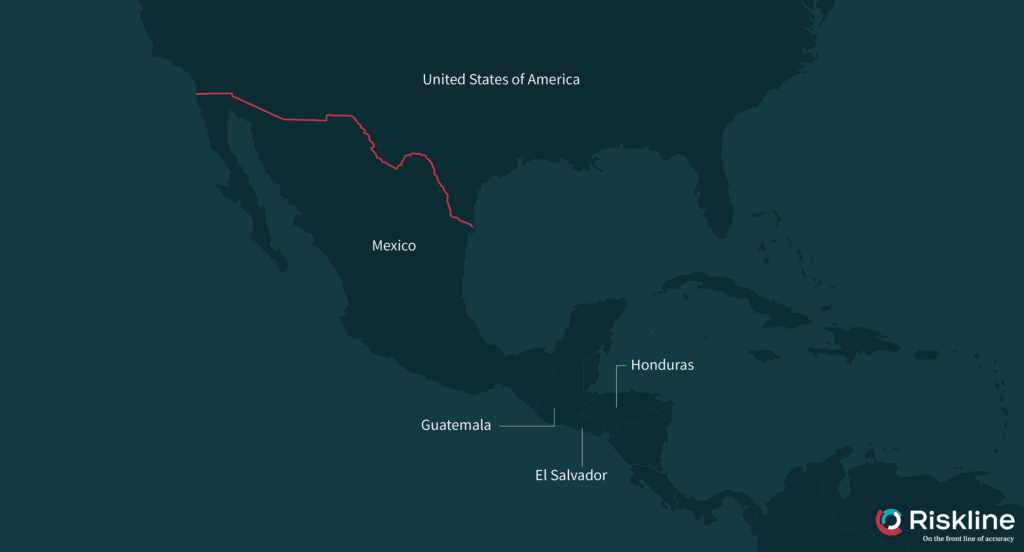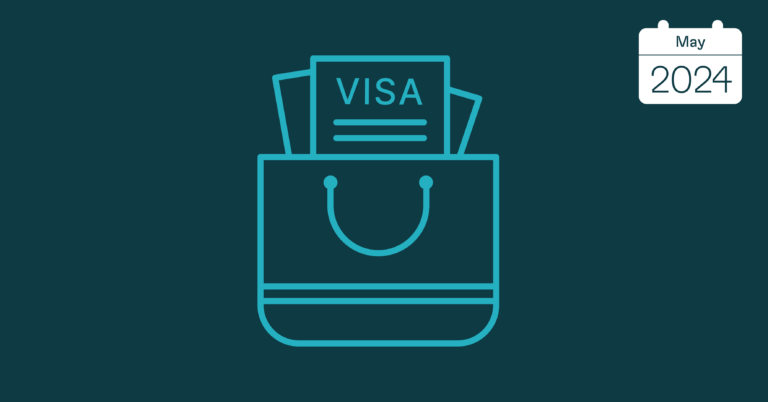Since the beginning of 2018, thousands of Central American nationals seeking asylum in the United States (US) have increasingly chosen to travel in caravans to keep safe on one of the most dangerous migration corridors in the world. US leaders have responded to the most recent caravans formed in October 2018 by preemptively sending troops to the southern border states, while Mexican authorities have offered temporary work permits to dissuade the migrants from continuing their journey. Within migrants’ home countries, governments increasingly resort to the security services to prevent these exoduses under the looming threat of a total cutoff of US aid should they fail to halt future caravans. The current caravans, however, are only one part of a much larger migration issue.
The International Organisation for Migration (IOM) estimates that every year an estimated 400,000 people flee extreme violence and poverty in the Northern Triangle of Central America (NTCA): El Salvador, Guatemala and Honduras. Migrants traveling through Mexico are frequently subjected to serious human rights violations and some 3,800 people have died making the trek since 2014; nearly a million more have been deported from Mexico before even reaching the US. Internal and international migration is inextricable from the political crises that began in the 1980s when the NTCA countries experienced brutal civil wars, partly due to destabilizing US covert intervention. Since then, an escalation in organised crime by gangs, such as Mara Salvatrucha (MS-13) and Barrio 18, growing poverty and effects of climate change have all compelled thousands of people to leave. Whereas previously the majority of the migrants were men, in recent years the number of unaccompanied minors and women has increased, particularly since 2017. This draws from a continuous threat of minors’ unwilling recruitment into gangs or the military, exploitation in the form of prostitution or human trafficking and even the mere wish to unite with family already in the US.
The most recent round of mass movement from the NTCA countries began when several hundred people left San Pedro Sula, Honduras, in a caravan organised through social media and word of mouth, on 12 October. Hundreds more joined the caravan along the way, and at least 3,500 people crossed the border over the Suchiate River from Tecún Umán, Guatemala, to Ciudad Hidalgo, Mexico, on 19 October. At least three other caravans have left from Honduras and El Salvador since 12 October. At least 4,000 people from the region are heading towards the border with the US in caravans, with at least one third of those migrating being minors, according to IOM. US intelligence estimates suggest that substantially fewer people than this are likely to make it that far north, with thousands more accepting asylum in Mexico or turning back home. Most caravan members present themselves at official ports of entry upon arrival to the US to began the legal asylum process, rather than risk a more dangerous illegal crossing.
The Trump administration has threatened to cut aid payments to the NTCA countries unless they persuade their citizens to stay home: already, Honduran President Juan Orlando Hernández has sought to deflect blame by claiming the caravans are funded by his political opponents. In response to claims of infiltrated gang members in the caravan and to prevent illegal entry of migrants, the US deployed 5,200 troops to the US-Mexican border, reserving the option to deploy up to 15,000 in total even though they lack authorisation to participate in arrests or other law enforcement duties. The partisan rhetoric and military mobilisation by President Trump and his allies was expected to have an influence on the 6 November elections in the US, despite the in-focus caravan being weeks away from the border.
Following pressure from the US and clashes between the migrants and Mexican and Guatemalan security forces that left at least two migrants dead, outgoing Mexican President Enrique Peña Nieto presented his ‘Estás en tu casa’ (You are at home) plan on 26 October to provide migrants with access to temporary work permits, healthcare and education if they applied for asylum in the southern states of Chiapas and Oaxaca. Hundreds of migrant caravan participants have already assented, according to OIM, which has also assisted returning migrants at the border checkpoints in Honduras. However, more “invisible” solo migrants and “visible” caravans can be expected, as weak and underfunded security forces, endemic corruption, political unrest and a persistent lack of economic development hinders the NTCA governments’ efforts to tackle violent gangs and poverty in the region. Should the US follow through to de-fund its NTCA security partners for failing to stop future caravans, the conditions giving rise to the caravans would only worsen.















